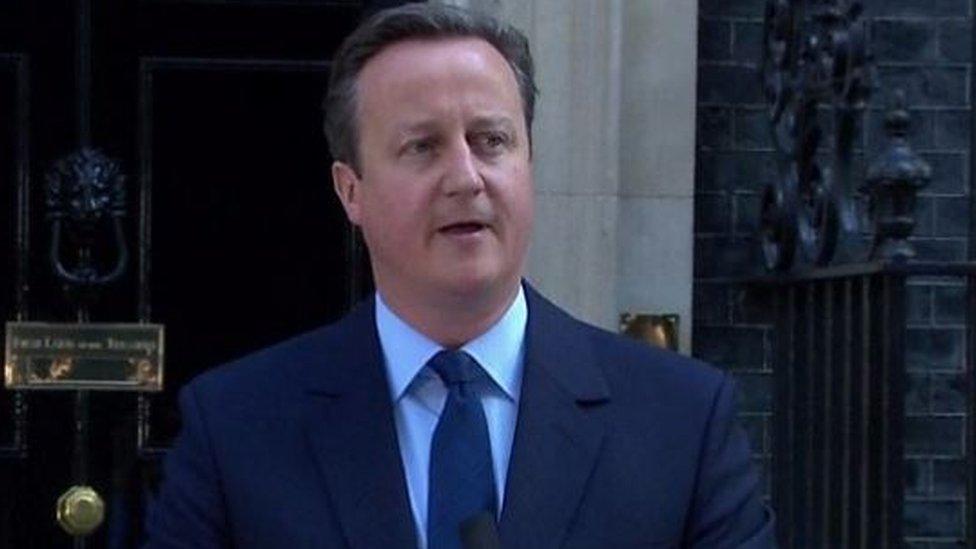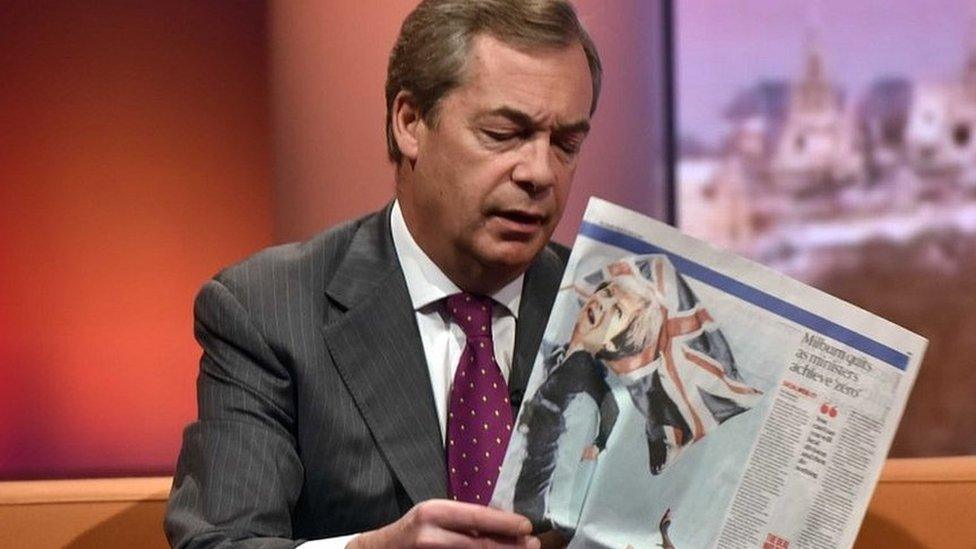People Power: Why it could make a Midlands comeback
- Published
IS POPULISM POPULAR?
Answer: Yes
It is indeed increasingly popular, apparently. And not just in those European countries which have either elected, or flirted with, the new emerging generation of populist leaders.
The City Independents have been the second largest party on Stoke City Council for the last three years and currently rule this traditional Labour stronghold in coalition with the Conservatives. Their growing influence has been widely interpreted as a rejection of conventional party politics in an area which is often seen as one of those places that have been "left behind" economically and politically.
My blog post last week set out at some length how the city had been buffeted by an apparently endless succession of economic storms over many decades, during which it witnessed the rise and fall of the BNP and then UKIP.
A similar rejection of orthodox party political loyalties was seen 20 years ago at traditionally 'true blue' Wyre Forest in Worcestershire. The threatened downgrading of Kidderminster's district general hospital led to the tide of protest which propelled the retired consultant, Dr Richard Taylor, to an unprecedented two terms as Wyre Forest's independent MP, from 2001 until 2010. The Independent Community Health Concern Party also seized control of Wyre Forest District Council and won seats on the county authority as well.

Former PM David Cameron used the word 'populist' almost like a term of abuse
Answer: No
It's hardly surprising, then, that populism is definitely not popular with politicians in the major parties. When David Cameron was Prime Minister, I remember him using the word "populist" almost like a term of abuse. He warned us populism was a phenomenon which needed to be confronted and defeated. That was before England's biggest populist political force of modern times, Nigel Farage's UKIP, drove the then-Prime Minister to call the 'in-out' EU Referendum that led to his downfall.
Yet again, the sense of economic disempowerment and political disenchantment felt by voters in areas like Stoke are often seen as prime factors behind the Leave majorities there.
And as if to demonstrate that the growth of independent politics is not confined to urban areas, a strong contingent of Herefordshire independents and 'It's Our County!' councillors is collectively breathing down the neck of the unitary authority's Conservative administration.
Having had two years to reflect on all this, Mr Cameron said last month: "It's no good saying to people 'well you've just got to understand the beauties and wonders of free market economics' when people are very clear the economy is just not working for everybody."

Nigel Farage and the populist force UKIP drove Mr Cameron to the referendum that led to his downfall
WHERE NEXT?
Our BBC Black Country political reporter, Rob Mayor, tells me the four boroughs he covers look like prime candidates.
That same mood of popular disaffection undoubtedly helped UKIP to turn Dudley into a local power base during their heyday. They made significant progress too in Walsall and Wolverhampton and, to a lesser extent, in Sandwell. UKIP's relative collapse in May's local elections has rebounded to the Conservatives' advantage, thwarting Labour's hopes of an overall majority on Dudley council and putting Walsall on a knife-edge too.
Despite a slight improvement in UKIP's poll ratings recently, some of the party's former Black Country activists clearly believe it's a busted flush. But that doesn't mean they have given up on their efforts to harvest the votes of those who feel little or no connection with the bigger parties; perhaps because of the Conservatives' spending cuts and Labour's support for a European single market in areas which voted overwhelmingly to Leave the EU.
The concept of a new Black Country Party, though very much a 'work-in-progress', is gaining traction all the time, so remember where you saw this first!
Rob Mayor will have a full report on it in this weekend's Sunday Politics Midlands, and I'll be joined in the studio by one of our MPs who has witnessed the emergence of independent politics at the expense of his own party: Gareth Snell, Labour MP for Stoke Central. Also with me will be Harriett Baldwin, Foreign Office minister and Conservative MP for West Worcestershire.
And I'll also be talking to one of those Independent councillors in Herefordshire, Jim Kenyon, who also polled a respectable 11% of the vote at the last general election.
And I hope you will join us too, for the last programme in our present series, at 11:00 on BBC One on Sunday 22 July.